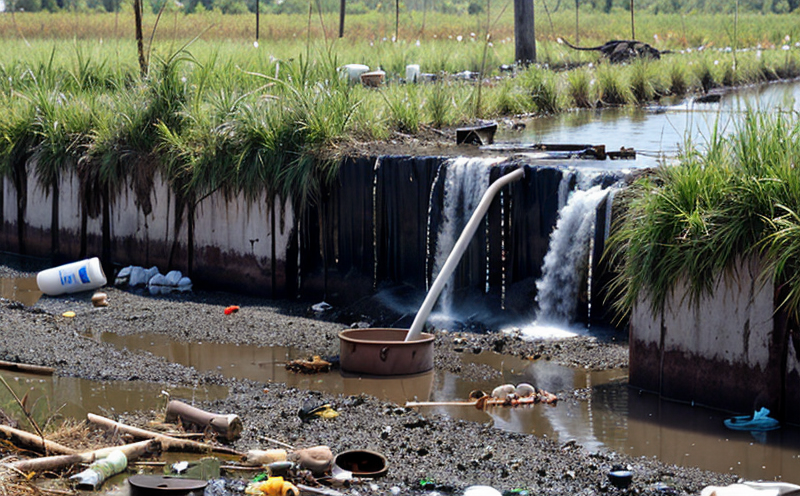Bottled Water Pollutant Testing
Ensuring the safety and quality of bottled water is a critical responsibility that extends beyond mere consumer satisfaction. Bottled water testing encompasses a comprehensive set of analyses aimed at identifying potential pollutants, contaminants, and microbiological hazards to guarantee that every bottle meets stringent international standards for purity and health.
The primary objective of this service is to provide detailed analysis on the presence of hazardous substances such as heavy metals (e.g., lead, mercury), organic compounds like pesticides or industrial solvents, and other potentially harmful contaminants in bottled water. This testing ensures that the product complies with regulatory requirements set by organizations such as the World Health Organization (WHO) and the Food and Drug Administration (FDA).
Bottled water pollutants can originate from various sources including contaminated raw materials, improper storage conditions, or equipment used during production processes. Our laboratory employs advanced analytical techniques to detect trace amounts of these contaminants with high precision. For instance, we use inductively coupled plasma mass spectrometry (ICP-MS) for heavy metal analysis and gas chromatography-mass spectrometry (GC-MS) for organic compound detection.
To perform effective bottled water pollutant testing, proper sample preparation is crucial. This involves filtering the water to remove suspended particles before conducting specific tests according to recognized standards like ISO 6341:1987 and ASTM D7299-15. The collected samples are then analyzed using sophisticated instruments capable of providing accurate results down to parts per billion (ppb) levels.
The importance of this service cannot be overstated, especially in light of increasing public awareness about the quality of drinking water. Compliance with international standards not only protects consumer health but also enhances brand reputation and builds trust among consumers.
Industry Applications
Bottled Water Pollutant Testing finds application across multiple sectors where bottled water is consumed. Quality managers in the beverage industry rely heavily on this service to ensure consistent product quality and maintain regulatory compliance. Compliance officers benefit from these tests by validating that their products meet local, national, or international safety guidelines.
R&D engineers use our services to innovate safer production processes and develop new formulations that minimize contamination risks. Procurement teams leverage bottled water pollutant testing during vendor evaluations to select suppliers who adhere strictly to quality assurance protocols.
By incorporating comprehensive pollutant testing into their operations, businesses can mitigate potential legal liabilities associated with unsafe products while simultaneously promoting a healthier environment for consumers.
Eurolab Advantages
At Eurolab, we pride ourselves on offering unrivaled expertise in bottled water pollutant testing. Our state-of-the-art facilities and highly trained professionals ensure that every test conducted meets the highest standards of accuracy and reliability.
We employ cutting-edge instrumentation such as ICP-MS for heavy metal detection and GC-MS for organic compound identification, ensuring precise measurements even at extremely low concentrations. Our laboratories are equipped with ISO 17025 accredited facilities, guaranteeing that all results adhere to internationally recognized quality assurance protocols.
Our commitment to excellence extends beyond technical capabilities; we also prioritize customer satisfaction through timely delivery of reports and proactive communication throughout the testing process. By choosing Eurolab for your bottled water pollutant testing needs, you can rest assured knowing that you are partnering with a trusted leader in quality assurance.
Environmental and Sustainability Contributions
Bottled Water Pollutant Testing plays an integral role in environmental protection efforts by helping to identify sources of contamination and guiding corrective actions. Through rigorous analysis, we contribute significantly towards reducing pollution levels in water supplies.
By detecting pollutants early on, this service aids in preventing further spread into natural ecosystems, which helps maintain ecological balance. Additionally, it supports sustainable development goals by promoting cleaner production practices within the beverage industry.
The results from these tests also inform policy makers about necessary interventions required to improve water quality standards globally. As part of our mission to contribute positively towards environmental sustainability, Eurolab remains committed to advancing research and development in this field.





